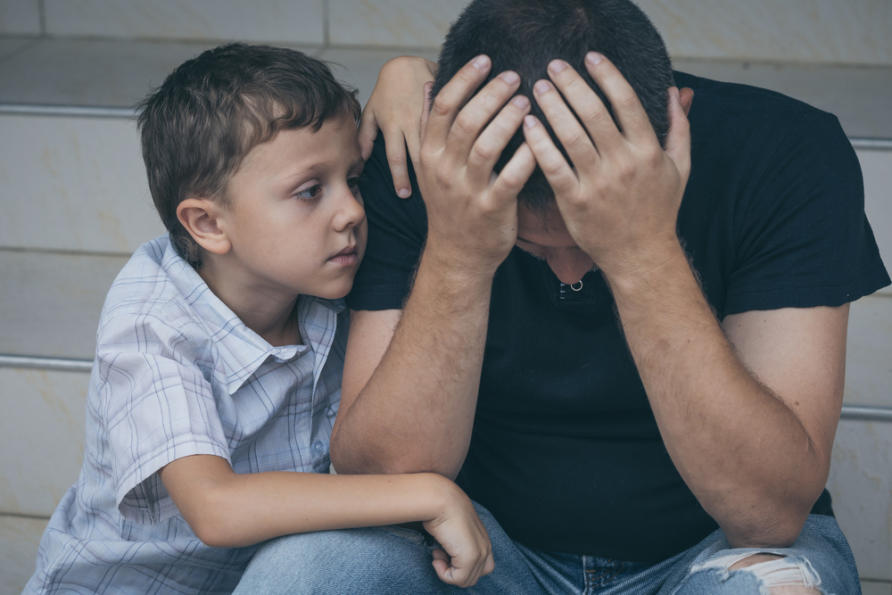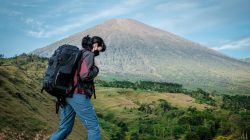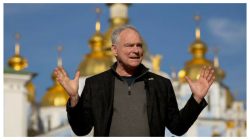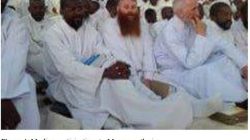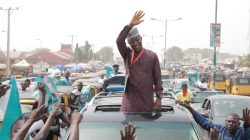THIS year’s Father’s Day, Nigerian men deserve more than applause—they deserve healing. Fatherhood is often viewed through the lenses of strength, provision, and unwavering resilience. Across Nigeria, fathers carry immense responsibilities—frequently in silence—as protectors, providers, and role models. Yet beneath this noble image lies a quiet, often overlooked crisis: the mental health of fathers. Globally, the conversation around men’s mental health is beginning to gain long-overdue traction. While we still have a long way to go, I am grateful for the small but steady steps in the right direction. Events such as the COVID-19 pandemic, the war in Ukraine, rising inflation, and mass unemployment have amplified stressors affecting men worldwide. For Nigerian fathers, these global upheavals collide with deeply entrenched local challenges—economic hardship, systemic insecurity, and cultural pressure—compounding their silent burdens. Each day, millions of Nigerian fathers wake up early, brave gruelling commutes, and confront an ever-uncertain job market—all while bearing the weight of expectations to provide, protect, and lead. Many wrestle with anxiety, depression, or burnout in silence, convinced that voicing emotional pain would compromise their manhood. Society tells them to “be a man—to be strong,” but rarely offers safe spaces where they can be seen as human.
Today, let us pause and acknowledge these men. Fathers, we see your sacrifices. We honour your resilience. We are grateful for the quiet strength you show day after day. You work tirelessly, often without thanks. Today, I give you your flowers—and humbly ask that you allow yourself to receive them. Lately, I have found myself reflecting deeply on fatherhood. I have often asked: Do I want to have children, and why? And perhaps more profoundly, what kind of man must I become to be the kind of father my future children deserve? I am a few years away from 40 and under no immediate pressure. Still, the questions linger. My father has done his best and continues to do so as he is able. Now in his 60s, he often reminds me that by my age, he already had three children. My younger brother and his wife have given our parents two grandsons, and while their hearts are full, I sense a quiet longing—perhaps for more from me and my elder brother. Let me leave my elder brother out of this and face myself. My father seldom speaks about how much the world has changed since his parenting years, but I know he sees it. I know he feels it. That man has weathered storms most would not survive (a story for another day). The world my future child would inherit is filled with uncertainty and complexity. The kind of technology we are seeing today was once science fiction.
I lived most of my life in Lagos, Nigeria, until I relocated in 2021 to pursue graduate studies. The journey has been deeply transformative. I initially set out to earn a doctorate—believing it would grant me the authority to solve problems at a higher level and perhaps earn the right to help others too. But what I’ve discovered instead is this: the more I learn, the more I realise how much I will never know. That experience sews you “humility” like “Agbada.” I’ve made peace with that and have embraced collaboration. After all, we were never designed for independence but interdependence. My journey has taught me that fatherhood today is not about having all the answers. It’s about being emotionally available, teachable, and present. In a world changing at a dizzying speed, those qualities might be the most essential. Too many Nigerian fathers are still shackled by the ghost of outdated cultural expectations—beliefs inherited from past generations that insist a man’s worth is tied solely to his ability to provide financially. If he can’t? He is considered less of a man. If he can? He is often excused from emotional, spiritual, and psychological contributions to family life. This narrow definition is not only harmful—it is unsustainable. Let me be clearer: I believe in men providing for their families. But I also believe in expanding what that means. A family needs more than money; it needs emotional grounding, spiritual wisdom, and psychological care. When men are only valued for what they can earn, they are denied permission to be whole. And when they fall short financially, their very sense of identity is at risk—making it even harder to show up for their families in other meaningful ways. If you are 55 and reading this—or if you know someone who is—celebrate them today. Given Nigeria’s current life expectancy, we are incredibly fortunate to still have these fathers with us.
We must urgently dismantle the stigma surrounding men’s mental health. Community-based solutions from around the world offer hopeful blueprints. Churches, mosques, and businesses can host mental health workshops tailored for fathers. Media campaigns must work to normalise emotional openness and help-seeking behaviour. Fathers deserve safe spaces where they can be human, not superhuman. Policymakers in Nigeria must act. Mental health services must be expanded, subsidised, and made easily accessible. We need national mental health policies that explicitly acknowledge the gendered challenges fathers face. This is not a luxury—it is a necessity. Let us collectively reject the myth that asking for help is weakness. Seeking help is strength. Vulnerability is not failure—it is a form of courage. Fathers deserve spaces where they can be vulnerable, supported, and whole. This Father’s Day, let us commit to building a culture that nurtures the emotional and mental well-being of our fathers. To every Nigerian father: your mental health matters. You are not alone. It is okay to rest. It is okay to cry. It is okay to ask for help.
Today, we honour you. We acknowledge your silent crisis. We advocate for you. Receive these flowers. You have earned them. I am rooting for you.
• Ukoh, an alum of the American University of Nigeria, Yola, and PhD student at Columbia University, writes in from New York.
READ ALSO: Father’s Day: Deputy Speaker, Kalu, celebrates Nigerian men
Provided by SyndiGate Media Inc. (
Syndigate.info
).

